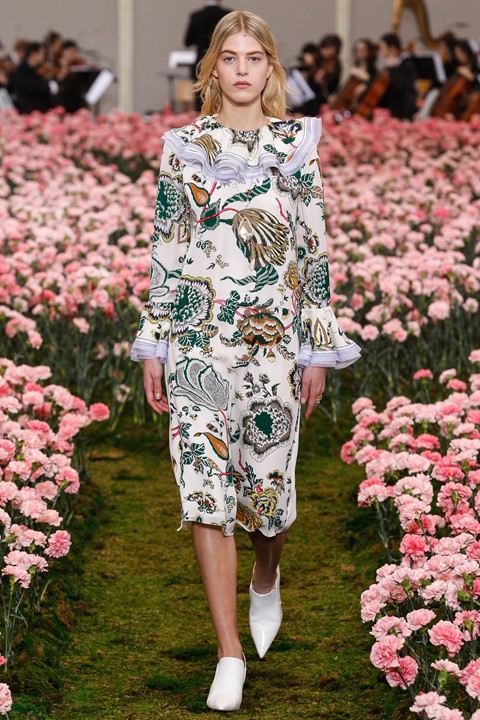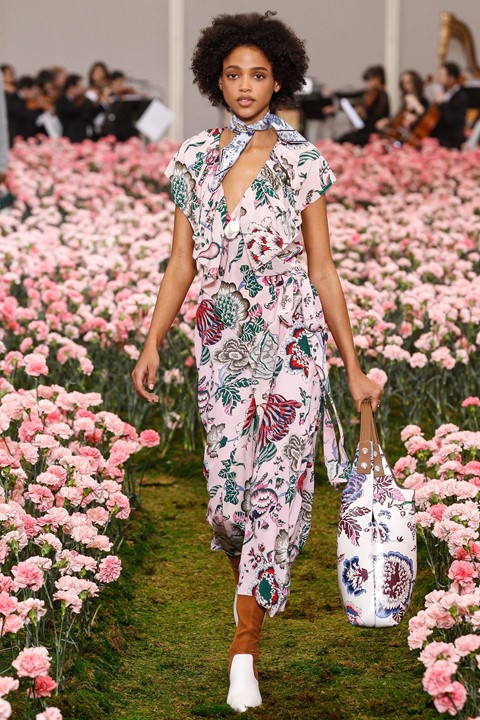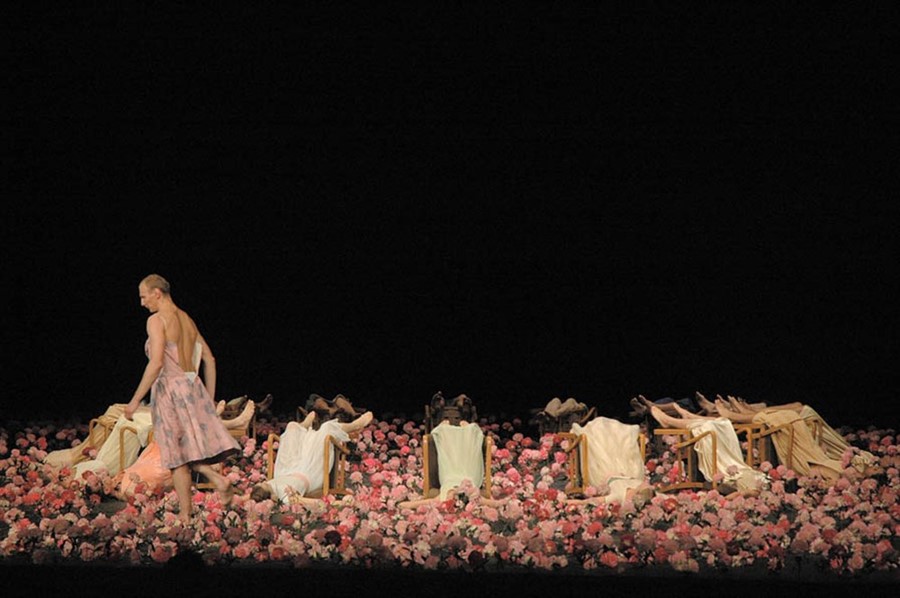The New York designer showed her A/W18 collection amid a sea of pink carnations, in nod both to romanticism and a groundbreaking 1982 work by Tanztheater Wuppertal
When the late, great Pina Bausch’s world-renowned Tanztheater Wuppertal dance company first performed its 1982 piece Nelken, or ‘Carnations’, it sparked a wave of powerful emotion which continues to resonate today. Choreographed and performed in a Germany still sensitive from the traumas of the Second World War, the piece comprises many of the enduring motifs that underpin much of Bausch’s work with the company: eccentric musings on human emotion; parodies of everyday encounters; and a dark comic undertone played out through manipulative seductions and seemingly childlike power games.
Nelken takes place in a poignant and paradoxical setting – a blanket of thousands of pink carnations poked vertically into the ground, standing to attention under the lights, even as their perimeters are patrolled by security guard-like figures and prowling Alsatians. (Every so often these guards stop the performers and demand to see their papers, lest the undertone of socio-political oppression was unclear.)
Most of all, though, Nelken paints a knowing portrait of the tricky dichotomy between beauty and control; the performers seem to overflow with emotion while they dance through the piece, flooding the stage with feeling and capturing their audience in it, too. That their doing so necessitates the destruction of that precisely crafted field of blooms serves only to underscore the deeply psychological question at the core of the work – about how and why we love, in spite of it all.

The visual signature left by that field of crushed flowers withering under glaring lights makes for a powerful precedent to Tory Burch’s A/W18 collection, which showed to an enraptured crowd in New York this weekend amidst its own field of pink carnations – an homage to Bausch’s pioneering work, created by set designer Miranda Brooks, and an elaborate stage all of its own. Here, however, the procession of models who marched through it had a neatly cleared path to follow – no need for floral carnage at all.
Nonetheless, the show picked up on some similar themes. “Romanticism defines the Fall/Winter 2018 mood,” Burch wrote in the show notes. “Feminine layers mixed with classic tailoring, a modern take on chintz, and contrasts of texture and print.” This translated into flowing, floral dresses teamed with tough outerwear pieces, a juxtaposition of the sweet and the resilient that played into Bausch’s work, too.

As for the characters themselves: Burch’s woman was inspired by the effortless style of Lee Radziwill, the super sleek American socialite and sister of Jackie Kennedy Onassis whose 2001 autobiography Happy Times is described in the synopsis as being “the credo of a woman who, having witnessed historical moments and shared the lives of individuals struck by fate, has made the deliberate choice to remember only what’s beautiful”. In her determination to highlight only the good – forgoing destruction and chaos in favour of a light reminder of the power of prettiness and positivity in our own heavy present – Burch’s A/W18 offering is arguably as relevant to a modern audience, carrying on in spite of it all, as Bausch’s 1982 one was to hers.
